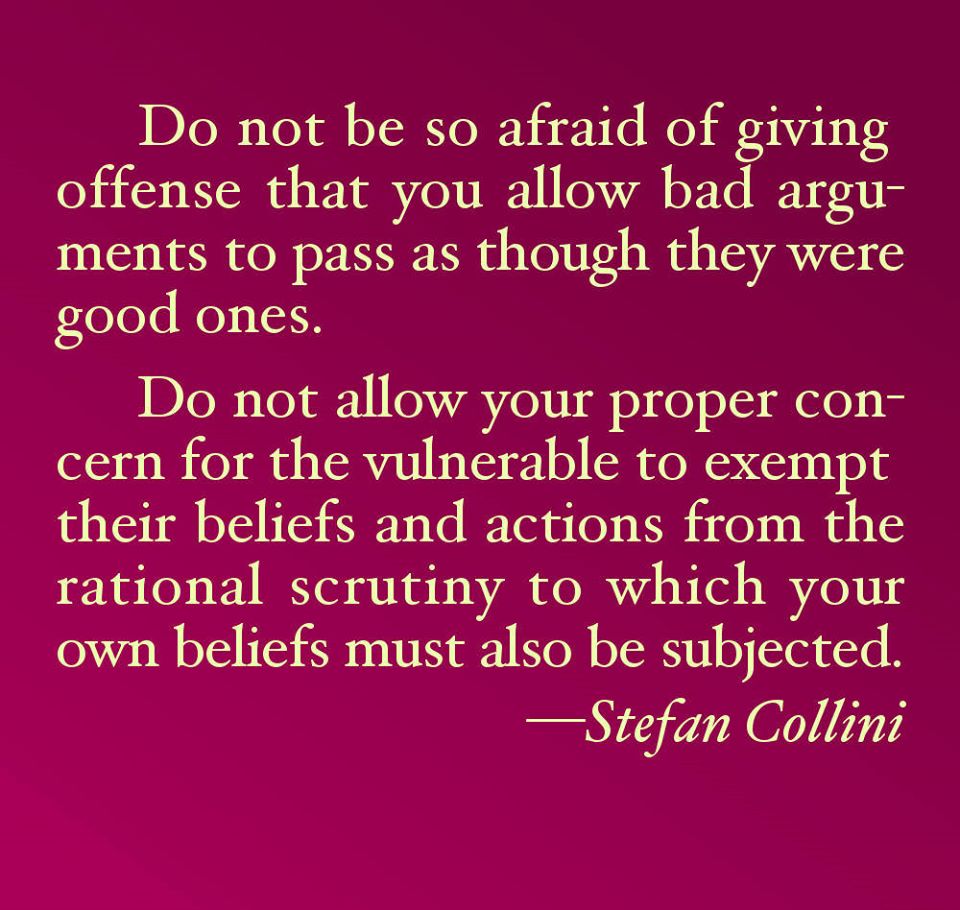rigor and offense

Do not be so afraid of giving offense that you allow bad arguments to pass as though they were good ones. Do not allow your proper concern for the vulnerable to exempt their beliefs and actions from the rational scrutiny to which your own beliefs must also be subjected.
—– Stefan Collini
In an era in which the desire to be nice, or inoffensive, often winds up in mealy-mouthed middle-of-the-road–ness, a message like this seems the opposite of mealy-mouthed. It runs counter to middle-of-the-road, because it goes against some of our most appeasing tendencies.
This happened on "Frasier" once: Frasier didn't want to shoot down an idea that needed shooting down, . . . because the person who gave it was black. And he didn't want to admit that it was because she was black. Funny episode, that went a little into "Seinfeld" territory in limning the absurdities our social values sometimes take us to.
So our friend Stefan here is saying something in two parts.
[part 1]
Sure, be careful not to offend, OK . . . but . . . not so gingerly that you let a bad argument pass.
Example: Your dear friend, whom you love, wants to travel to Las Vegas in early April of 2020 to pay tribute to his WWII-veteran dad's grave, a meaningful yearly tribute that the family makes, coming from all over. And this friend wants to do it "because we're getting a good handle on this virus and I'll be careful." Your desire not to offend should never force you to let that extremely bad argument pass.
{part 2}
Have concern for the vulnerable, OK . . . but . . . not so indiscriminately that you exempt them from scrutiny.
Example: Your friend is a single mom with a low-end job. You find out she's been siphoning gas from neighborhood cars. Hm. Understandable as that crime-of-need is, you still shouldn't let her just pass.
If the situation were switched, you'd never want someone to let your integrity wither that way.
So find a way instead —– gently confront her and say that, if she needs help, you and your neighbors will gladly chip in. Your values remain unchanged (care for the vulnerable), but, vitally, you protect her spirit, and your neighbors' property, as well.
Ultimately, Collini says, don't settle for the cheap definitions of "niceness" that our bad dictionaries offer. Instead, hold out for the better definitions of how to treat people, by giving them the full measure of respect they deserve —– putting logic and actions to the test, as you would your own.
Comments